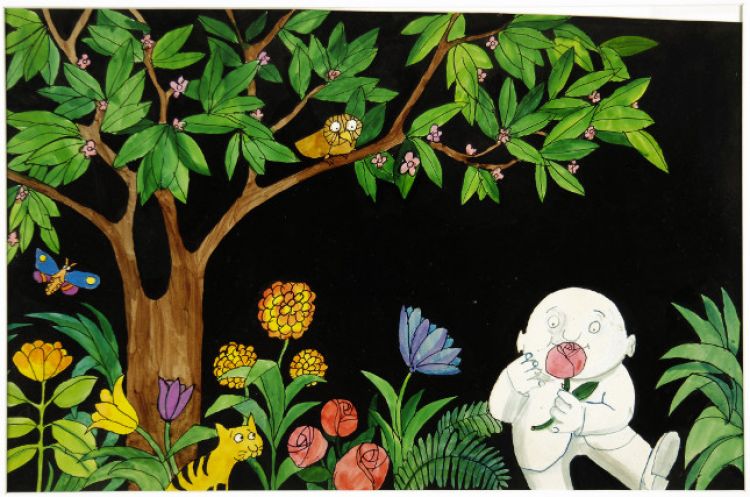Moon Man

"[T]he eternal story of the outsider who is different from others." says Tomi Ungerer. "His curiosity takes him on an adventure that turns into a mishap. That's a bit like me."
Published in 1966, this book is the story of the voyage of Moon Man, an inhabitant of the moon. From the moon, where he is bored with being alone, he dreams of joining Earth and the humans he observes dancing in the moonlight. But the welcome they give him turns out to be anything but friendly. The state, the army and the population gang up on him. This story in the form of a fable denounces intolerance and totalitarian power, which leave no room for individuality. In this world where differences are not accepted, it is in the realm of nature, far from men, that Moon Man will be happiest. His meeting with an eccentric old man, Doctor Bunsen van de Dunkel, will save him, because the scientist has just completed the construction of a spaceship. Written three years before man's first steps on the moon, this little piece of science fiction is highly topical. It is an opportunity for Tomi Ungerer to criticise social exclusion and intolerance. It is also an echo of Jules Verne's science fiction, of which Tomi was a fervent reader as a child. They gave him the idea for Moon Man, an atypical hero, a dreamer. The style of this album is similar to that of The Three Robbers in the use of solid colour and inks of bright or diluted colours, but differs from it in the care taken with detail.
